Impeach the College: The Debate on the Electoral College
The electoral college has been established for 231 years and has been apart of all 43 of the United State’s elections. However, there has been an ongoing debate on the usefulness and overall purpose of the electoral college.
“The whole idea of the electoral college came from when the fathers were writing the constitution and half of the founding fathers wanted the president to be voted for through the popular vote, and the other half did not,” said Shannon Mooney, government teacher, “They wanted the president to be either chosen by congress or by state legislatures, because they couldn’t think– well– kinda the general consensus was that the common person was not educated enough to be apart of politics, and that they should not be allowed to vote for president.”
However, as times have gone by, with new technology which works alongside social media, the public has gained an inherent ability to educate themselves. Educated voters are, comparatively, more common than they were when America first began to have the elections. In fact, social media provides as a way to look at a glimpse of said elector’s past and compare it to their current policies and actions.
So then, what’s the problem? “In modern times, it serves no purpose for us,” said Mooney, “there’s– I wanna say that there’s no real harm to it, but there’s no real benefit to it. And it’s just a complicated process that means nothing to us anymore.” Her sentiments are shared. In fact, according to a poll released by people-press.org, 55% of Americans who voted in the 2016 elections say that “The constitution should be amended so that the candidate who wins the most votes in the presidential election should win.”
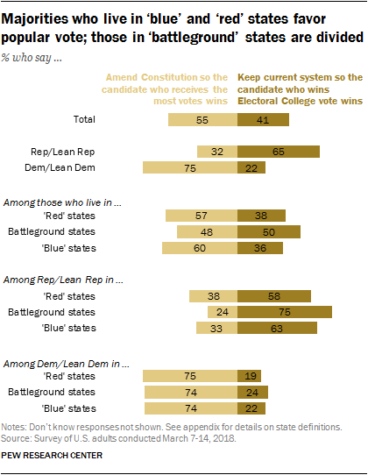
Specifically, the problem lies in a couple of things. Firstly, the reason for the establishment of the electoral college is no longer relevant. As Mooney said, the original belief was that the common man wasn’t educated enough to vote themselves. However, in recent times, Americans have been able to become more informed of our decisions and our candidate’s policies. It’s fair to say that Americans as a whole are more educated about voting decisions than they have been in recent decades.
Secondly, there’s the “winner-take-all” policy. “Out of the 50 states, 48 have a winner-take-all policy,” said Mooney, “so if a candidate gets the majority vote in a state, then all of their electoral college votes go to that candidate.” This being said, swing states hold most power– that is, states like California and Indiana are a practical guarantee of a certain party alignment, while ‘wild card’ states like Florida tend to get more attention. In the 2016 election, according to an episode of PBS NewsHour, “90% of campaign stops by both Hillary Clinton and Donald Trump were made in battleground states. Two thirds of which took place in the four top battleground states: Florida, Pennslyvania, Ohio, and North Carolina.” This is not representative of the majority of the people in America, and so is not necessarily representative of what the people specifically want.
“Um, because we have had candidates win the popular vote but lose the electoral college vote twice in the last twenty years. I think that shows that it’s not representative anymore,” said Mooney, “It’s just playing a numbers game, it’s not what the people want. If we’re supposed to be a democracy, y’know, for the people and by the people, then we need to be able to popularly elect our president.”
Which brings up the third and final point: the electoral college ignores the will of the people. First of all, the choosing of who the electoral voters are for each state is a confusing process itself. It’s highly secretive and not many people know whether or not they actually have a say in it. What tends to happen is that parties will elect voters at their conventions, which is purely based on how dedicated to the party that certain person is. Then, on election day, the list of chosen people actually appear on the ballot in some states under each candidate’s name. Depending on who wins the state, that’s the the party whose chosen electoral voters now get to vote. The only two states who do not participate in this process and go on a district by district basis are Nebraska and Maine.
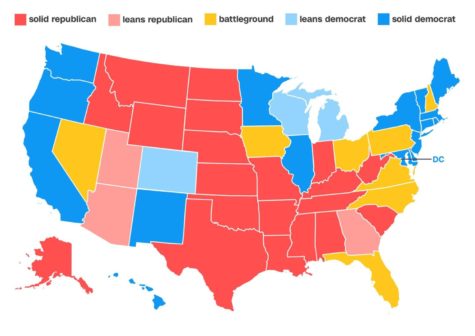
But what would even happen if America got rid of the electoral college? “Currently, the way things are now, I don’t think there would be any immediate harm to our democracy for us to switch from the electoral college to the popular vote,” said Mooney. “I wanna say that there’s no real harm to it, but there’s no real benefit to it. And it’s just a complicated process that means nothing to us anymore.” It’s that line ‘it doesn’t do any real harm,’ that’s fueling the other side of the argument. People for the electoral college argue that the electoral college serves a purpose since the founding fathers believed it was the best method to choose president. The only issue with such a stance is the fact that once again, voters are more educated now than ever, and the population of the United States has multiplied over ten fold since those times. This being said, to select a handful of people out of millions is a bit disproportionate, especially when a democracy is supposed to represent the voice of the majority. A select handful of people cannot accurately represent an entire group.
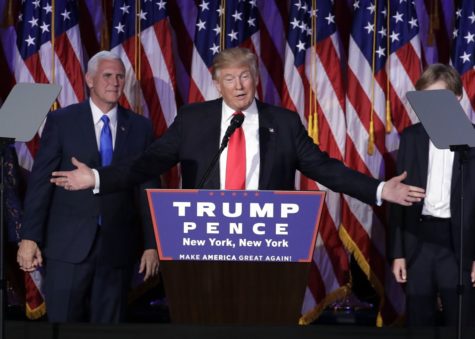
This being said, the electoral college has no real benefit to our democracy, and in fact squandering the original purpose of voting in the first place. As times continue, the use of the electoral college is only decreasing with each election, as more and more voters participate, that’s only more and more voices to be heard. 538 people in a population of 325.7 million people cannot and should not represent the majority, regardless of who established it and for what purpose.
Unfortunately though, there isn’t a quick solution to this. “We aren’t getting rid of the electoral college anytime soon, so understanding how it works makes you a more educated voter,” said Mooney, “It’s not just about who you’re voting for but what the process is and that’s the most important thing. It’s just– knowing what’s going on and how it works.”
Your donation will support the student journalists of Richland Northeast High School. Your contribution will allow us to attend conferences, purchase equipment and cover our annual website hosting costs.



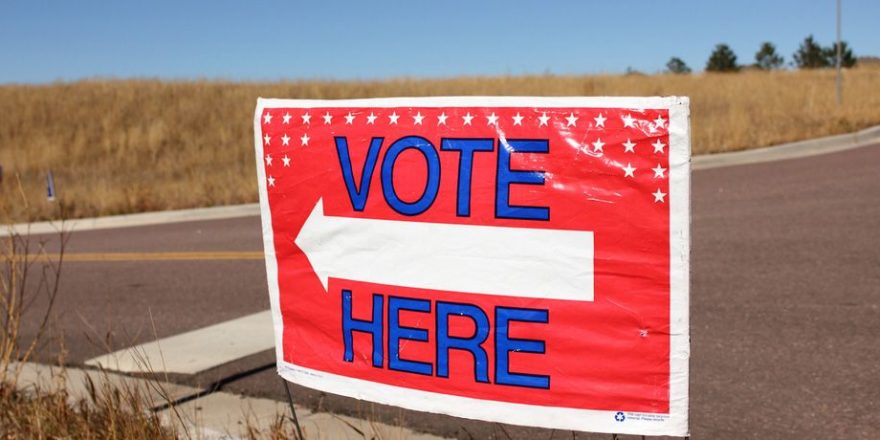

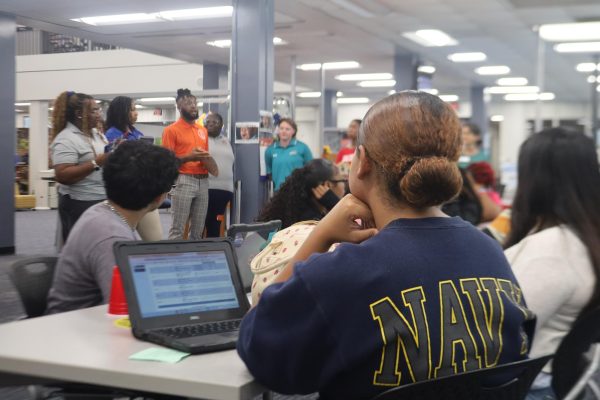
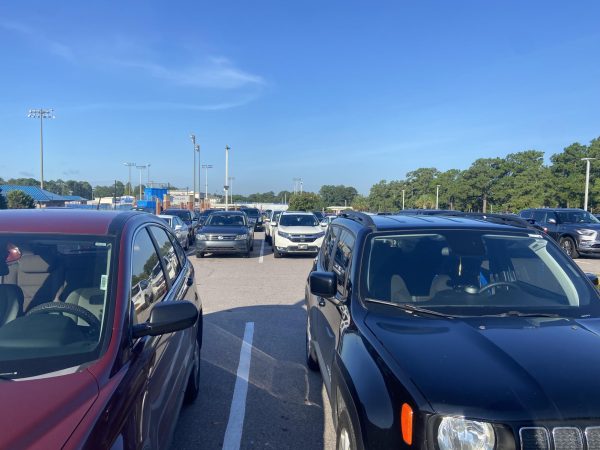


Susan Anthony • Nov 14, 2018 at 11:19 AM
The National Popular Vote bill is 64% of the way to guaranteeing the majority of Electoral College votes and the presidency to the candidate who receives the most popular votes in the country, by changing state winner-take-all laws (not mentioned in the U.S. Constitution, but later enacted by 48 states), without changing anything in the Constitution, using the built-in method that the Constitution provides for states to make changes.
It simply requires enacting states with 270 electoral votes to award them according to the nationwide, rather than the statewide, popular vote.
All voters would be valued equally in presidential elections, no matter where they live.